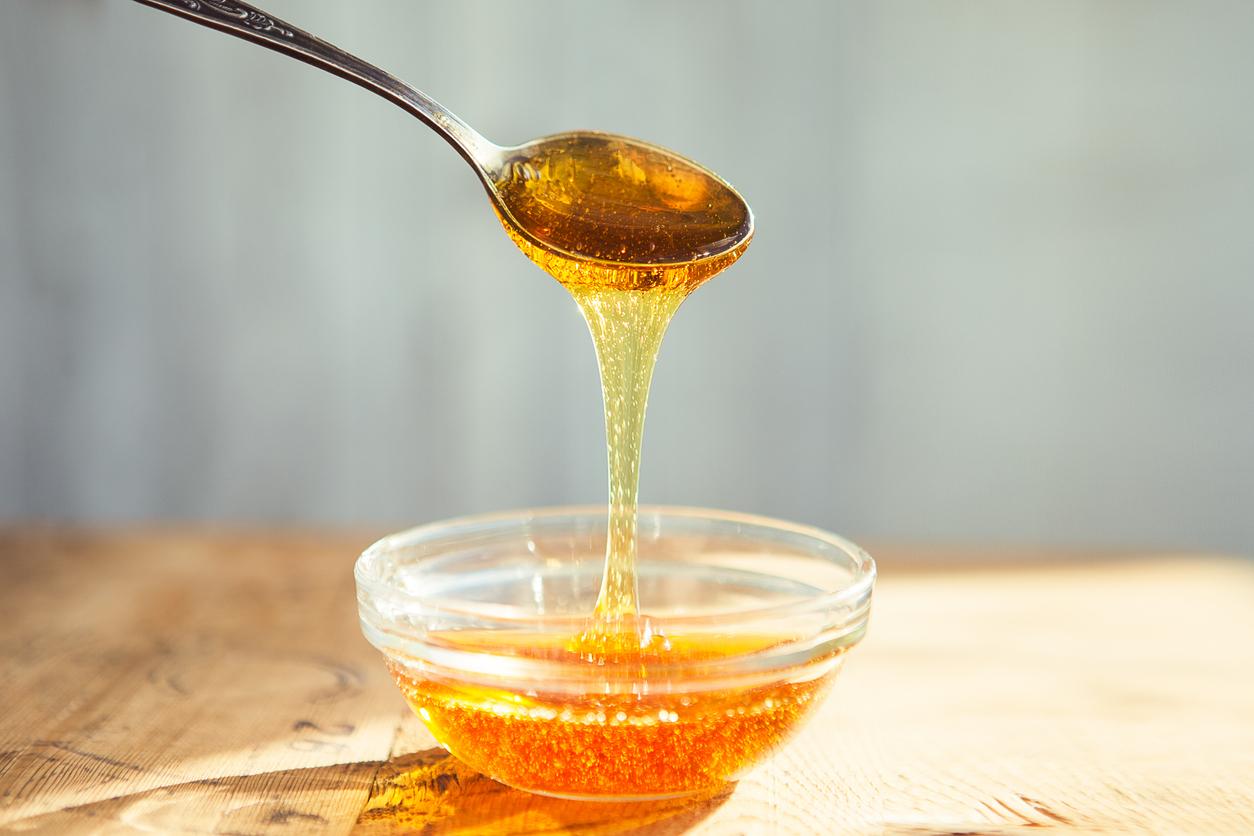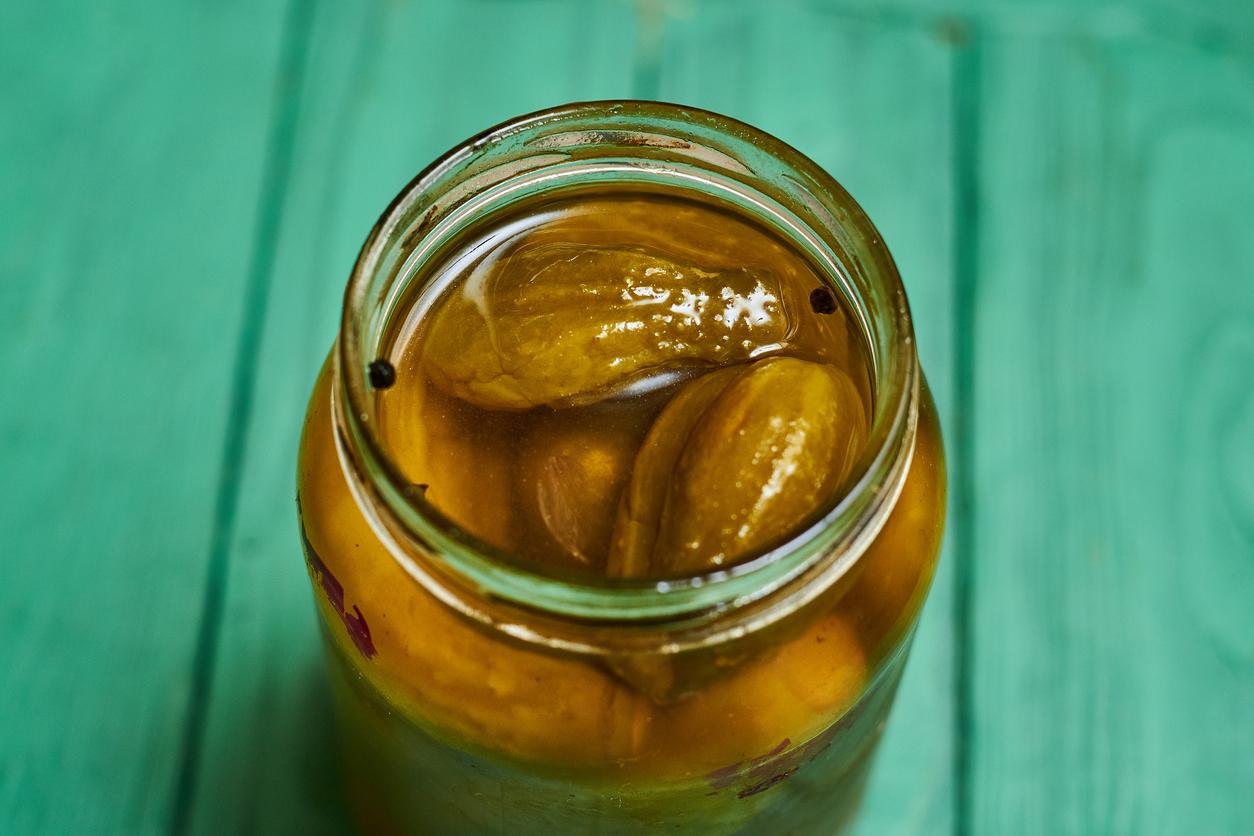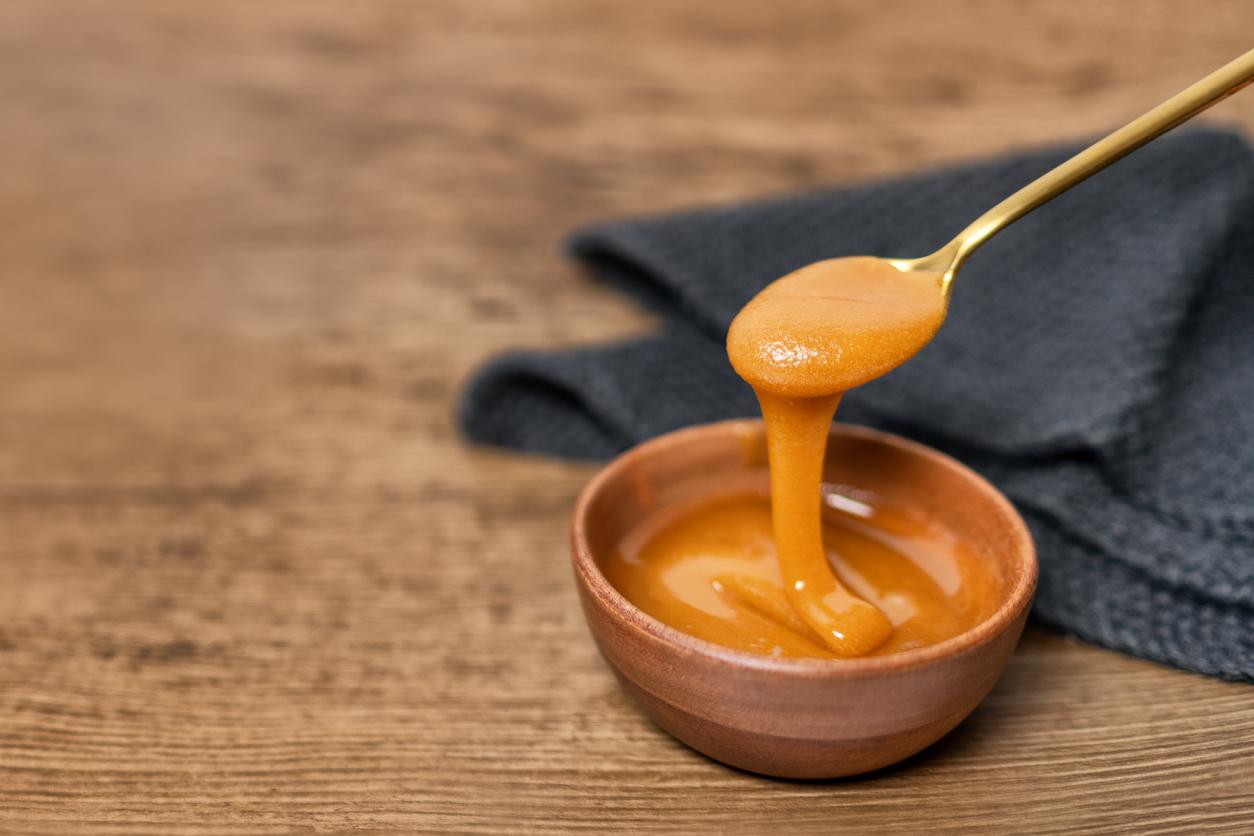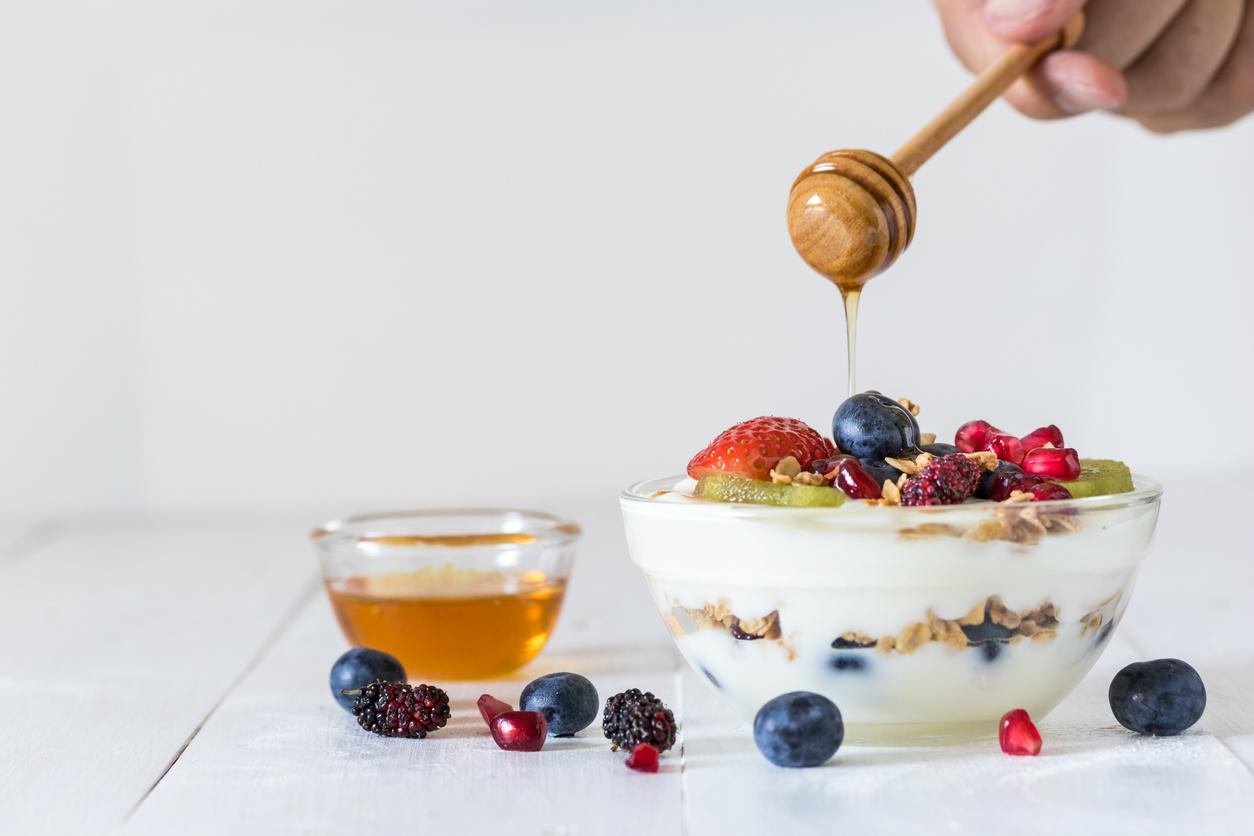A meta-analysis of a dozen studies reveals that honey is, in some cases, more beneficial than certain drugs for treating respiratory infections.

- Honey is more effective in reducing the frequency of coughing spells than diphenhydramine, an active ingredient used in cold medicines.
- Taking honey would reduce the healing time of the common cold.
Little known, apitherapy, the therapeutic use of bee products, is widely used by many doctors thanks to its antibacterial, antiseptic, healing and anti-inflammatory properties. A meta-analysis, which includes fourteen studies conducted in children and adults, reveals that honey would in some cases be an acceptable alternative to conventional drugs, especially to reduce the frequency and intensity of coughing. The results were published on August 18 in The British Medical Journal (BMJ).
Shared results
Among the studies analyzed by the researchers, several showed that honey is more effective than prescribed molecules for infections of the respiratory tract. Four other studies compared honey and diphenhydramine, an active ingredient used in cold medicines. They involved 385 patients, including 3 out of 4 children under 18, and showed that honey is more effective in reducing the frequency of coughing spells than the pharmaceutical molecule. Another study concluded that taking honey reduced the healing time of colds while a sixth study indicated that patients experienced an improvement in throat irritations after four days of treatment with honey.
Not all studies have found a prevalence of honey over other drugs. Two of them involved a total of 137 patients, all under the age of 18, and did not show any significant effects of honey compared to dextromethorphan on cough frequency and intensity. In addition, two studies, involving 372 participants, did not show a higher intake of honey compared to a placebo.
Honey, a credible alternative
The conclusion of the researchers of this meta-analysis is that the use of honey represents a credible alternative to certain pharmaceutical molecules, in particular to reduce the frequency of cough and its intensity in children. In addition, this food causes almost no side effects and does not lead to resistance in microorganisms as badly followed or badly prescribed drug treatments can do.
.

















